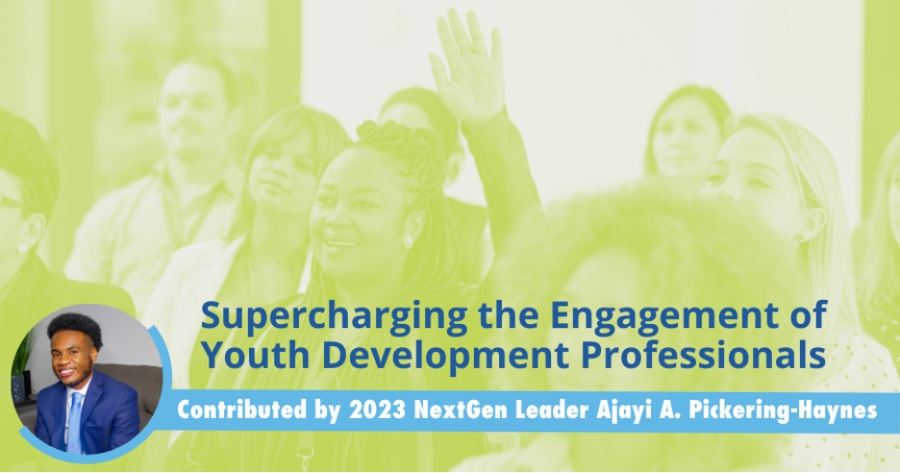For this to happen, site leaders and administrators must take on an active role to consciously design, implement, and maintain a positive, supportive environment. This empowers youth development staff to engage with youth and program participants. In my recent work as a Program Director for a 21st Century Community Learning Center in the U.S. Virgin Islands, I’ve learned a few tried and true ways to supercharge your team’s involvement and engagement.
Level set expectations and create standards of behavior as a team.
When staff are not given a chance to contribute to setting expectations on site, they are less likely to abide by them. In 2023 and in the spirit of equity, we need to shift power dynamics. This is a clarion call to site leaders and administrators to institutionalize sharing power and decision-making with your staff - starting from day one. Facilitate an exercise and conversation around setting expectations and creating standards of behavior as a team, for the team.
The value of doing this activity as a team is that when any member of the team falls short of their responsibilities, everyone is empowered to hold each other accountable for the standards of behavior that the entire team has mutually agreed upon. If one person is dictating expectations around what engagement should look like between your team and your program participants, you will notice disengagement as a result. It’s time to spend less time determining the expectations of your team and more time creating room to hear from them on what standards of behavior they know will be necessary for them to be successful.
Make 1:1 meetings with direct-level staff a habit.
Anyone that runs or works in an out-of-school time program knows that it can be described as organized chaos. Even when it feels like there aren’t enough hours to get tasks done in a week, 1:1 check-ins are important. It’s critical to get to know each member of the team on an individual level. Find out what is important to them. What they see for themself in the future. And, what activities they are most passionate about in the program. This is how you can be sure to create and maintain their involvement in the program in ways that keep them interested, active, and engaged. 1:1 meetings can also be an opportunity to hear their perspective about how the program is going and to hear from them on what can be improved upon. In my 1:1 meetings with my site team, I usually ask them if there’s anything I can do for them personally to make their experience on the team, as a youth development professional, and as a program participant mentor more successful. 1:1 meetings can be an opportunity to learn from staff that may be showing some level of disengagement. Turn to wonder, actively listen, and show empathy for the staff’s humanity, experiences, and challenges.
Create opportunities to highlight and showcase the work of your team.
As we continue the professionalization of the after-school field, we must continue to foster, instill, and bolster pride in the work that our youth development professionals do. This is why organizations like the National Afterschool Association and the Afterschool Alliance are so important to our field. Youth development professionals need to be reminded, recognized, and highlighted for their multifaceted skill sets as innovators, educators, mentors, coaches, interventionists, consultants, evaluators, and the list goes on. Provide opportunities in your local community through partnerships with local media, leverage social media platforms, and serve as an ambassador in national spaces like NAA to highlight the work of your team. When people feel celebrated and valued for their significant contributions, they are more likely to maintain their engagement and commitment to any cause. Make bragging a part of the culture of your program for every member involved, right down to students and parents.
There are many other ways that we can supercharge the engagement of youth development professionals so that they remain committed, excited, and passionate about the challenging work that they do. We just have to be willing to create the conditions for them to do so.
Contributed by NAA NextGen 2023 Ajayi Pickering-Haynes. Ajayi is a Nonprofit Leader, Public Health Professional, Writer, & Speaker.

